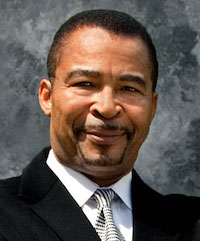Bahá’í Chair Lecture on W.E.B. DuBois and Sociology
 W.E.B. Du Bois was one of a handful of scholars of the twentieth century with a sustained global impact on sociological, literary, and political knowledge. Professor Aldon Morris from Northwestern University will draw on evidence from his recently published book, The Scholar Denied: W.E.B. Du Bois and the Birth of Modern Sociology (University of California Press, 2015), to demonstrate that Du Bois was the founding father of scientific sociology in the United States.
W.E.B. Du Bois was one of a handful of scholars of the twentieth century with a sustained global impact on sociological, literary, and political knowledge. Professor Aldon Morris from Northwestern University will draw on evidence from his recently published book, The Scholar Denied: W.E.B. Du Bois and the Birth of Modern Sociology (University of California Press, 2015), to demonstrate that Du Bois was the founding father of scientific sociology in the United States.
Professor Morris will examine how American scientific sociology was founded in a segregated black university by a black man, disconfirming the accepted wisdom that American scientific sociology was founded solely by white sociologists in elite, white universities.
This talk will explore the methods W.E.B. Du Bois pioneered and his novel theorizing that laid the foundations for subsequent sociological analyses. Professor Morris will offer an account of the dynamic forces that generate scientific schools of thought and that undergirded knowledge production in social science during Du Bois’s era.
Dr. Hoda Mahmoudi, the Bahá’í Chair for World Peace, commented on the significance of this lecture, saying, “W.E.B. Du Bois was one of the greatest academics of his time, and yet his outstanding scholarly contribution to American social science and sociology have been marginalized. Our program is very interested in profiling this important academic figure.”
Professor Morris is the Leon Forrest professor of sociology and African American studies at Northwestern University. His interests include race, social inequality, religion, politics, theory, and social movements. He is working on a project on the civil rights movements throughout the United States, rather than focusing exclusively on the Southern Civil Rights Movement.
The Bahá’í Chair for World Peace is a renowned academic program within the College of Behavioral and Social Sciences. It uses interdisciplinary discourse to examine the way actors and institutions effect social change and transform society.
For more information on the Bahá’í Chair and to read about the event, please visit the Bahá’í Chair website, Facebook, Twitter, and Instagram.
Published on Wed, Jan 20, 2016 - 1:32PM



